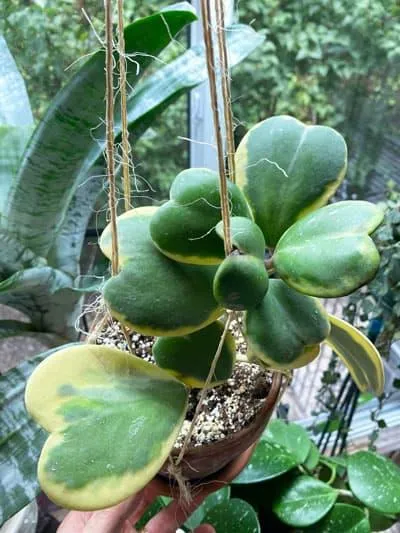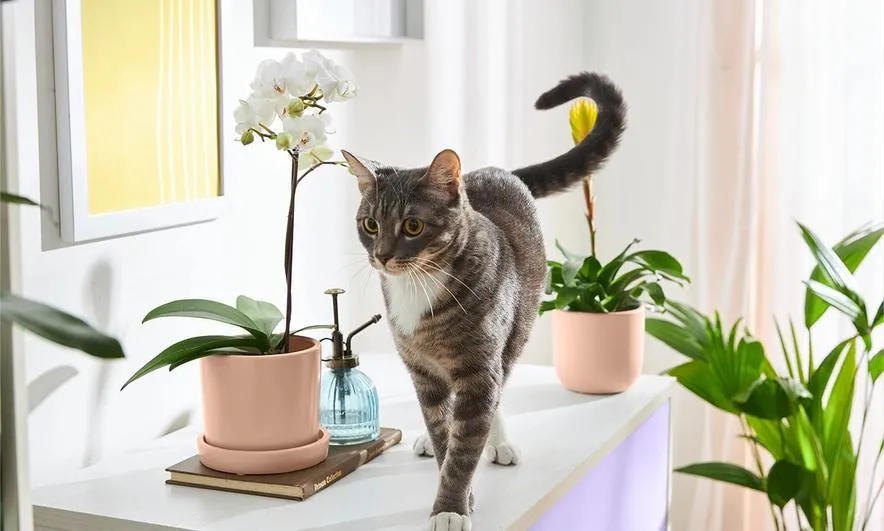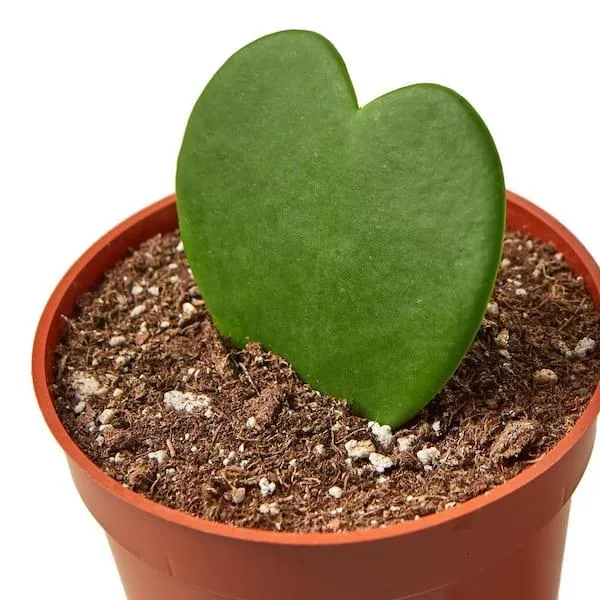Can Cats Be Around Hoya Plants? Answers to Your Questions
If you have a Hoya plant at home and a furry feline friend, you may be wondering – can cats and Hoya plants coexist safely? In this article, I’ll answer all your questions about hoya plant care when cats are around.
Are Hoya Plants Toxic to Cats?
The short answer is yes – most parts of the Hoya plant are considered mildly toxic to cats if ingested. Specifically, the sap and leaves contain compounds called saponins that can cause vomiting or diarrhea if a cat chews on or swallows parts of the plant. So it’s important to keep your cat away from any parts of the hoya that they may be tempted to taste.
Will Cats Be Interested in Hoya Plants?
From my own experience as a plant enthusiast and cat owner, it really depends on the individual cat. Some cats will completely ignore plants while others may be curious to chew on thick, waxy leaves. The good news is that most cats don’t seem naturally drawn to hoya plants like they are to other houseplants. Still, it’s always wise to be cautious with any potentially poisonous plant.
How to Cat-Proof Your Hoya Plant
There are a few things you can do to keep your hoya safely out of your cat’s reach:
- Place the plant high up, like on a shelf or hanging from the ceiling where cats can’t jump.
- Use a protective pot with tall, sturdy sides that fingers and paws can’t grab over.
- Surround the bottom of hanging plants with thorny protector plants like rosemary to deter climbing.
- Add pebbles or decorative rocks to the top of soil so it’s less appealing for digging.
- Consider potting the hoya in a closed container with small holes for ventilation.
The key is making the plant inaccessible rather than counting on your cat not being interested. Kitties can sometimes act on random impulses, so it’s better safe than sorry.
Signs Your Cat May Have Ingested Hoya
If despite your best efforts, your curious feline manages to nibble on the hoya, watch out for these potential symptoms:

- Vomiting
- Diarrhea
- Loss of appetite
- Excessive drooling or pawing at the mouth
- Lethargy
If you notice any of these, it’s best to contact your vet right away, especially if symptoms are severe or persist for more than a day. They may induce vomiting or recommend other treatment. It’s always better to err on the side of caution with plant poisoning.
Safer Alternatives to Hoyas for Cat Owners
If you’re not 100% confident you can keep fuzzballs away, here are some beautiful houseplants that are generally considered non-toxic to cats:
- Peace Lily
- Spider Plant
- Pothos
- Snake Plant
- ZZ Plant
- English Ivy
These thriving indoor greens tend to provide visual interest without enticing kitties to sniff or nibble. You get the aesthetic appeal without as much safety worry.
Making Peace Between Plants and Pets
At the end of the day, it sometimes takes a bit of patience, supervision and feline-proofing to allow beloved plants and pets to coexist happily at home. Here are some more tips that have worked for me:
- Provide plenty of scratching posts and toys to redirect energy.
- Spend quality play time with your cat daily to tire them out.
- Use scents like citrus or lavender near plants; some cats dislike the smell.
- Gently discourage playful behaviors near plants with a spray bottle or noise.
- Monitor any new plants or rearranged areas closely at first.
With care and compromise, there’s no reason you can’t enjoy houseplants and feline friends. It just takes finding the right balance and being cautious of potential hazards.
Frequently Asked Questions
Here are answers to some other common questions people have about hoya care when cats are in the home:
Q: Can I use hoya cuttings as decoration around the house?

It’s generally not advised to let cuttings lay around where curious kitties could potentially ingest them. Stick to placing potted plants in cat-proof areas.
Q: Will spraying hoya leaves with pesticides or fertilizers be toxic?
Yes, any chemicals not intended for ingestion should be kept well away from areas cats frequent. It’s best to water and care for plants when kitties aren’t around.
Q: Will my cat get sick from nibbling on dead or dying hoya leaves?
Even wilted or fallen leaves could potentially cause digestive upset. It’s always best to sweep up any debris immediately that your cat may be inclined to chew or eat.
Q: Is it okay if my cat brushes against hoya plants occasionally?
Light brushing against hoya plants is unlikely to harm cats. The main risks are from ingesting or intensely chewing on leaves, stems or sap. As long as furry friends aren’t mouth-interacting, casual physical contact should be fine.

In conclusion, hoya plants can coexist happily in cat homes as long as some basic safety precautions are followed. With understanding and cooperation between botanical and feline family members, you can keep both satisfied. Just be sure to strategically place hoyas in inaccessible spots and watch for any concerning interactions. With care, curiosity and compromise, sharing indoor plant space is very possible.
Hoya Plant Care Requirements
| Plant | Light | Water | Humidity | Soil | Fertilizer |
|---|---|---|---|---|---|
| Hoya carnosa | Bright indirect light | Let dry out between waterings | Moderate | Well-draining potting mix | Diluted liquid fertilizer monthly in growing season |
| Hoya bella | Bright indirect light | Let dry out between waterings | High | Well-draining potting mix | Diluted liquid fertilizer monthly in growing season |
| Hoya kerrii | Bright indirect light | Let dry out between waterings | Moderate | Well-draining potting mix | Diluted liquid fertilizer monthly in growing season |
| Hoya mathilde | Bright indirect light | Let dry out between waterings | Moderate | Well-draining potting mix | Diluted liquid fertilizer monthly in growing season |
| Hoya linearis | Bright indirect light | Let dry out between waterings | Moderate | Well-draining potting mix | Diluted liquid fertilizer monthly in growing season |
FAQ: Hoya Plant Cats
-
What are hoya plant cats?
Hoya plant cats are a funny name for outdoor cats that seem to enjoy laying or climbing on hoya plants. Basically, hoya plants are vines with waxy heart-shaped leaves that some cats appear to find comfortable. So cat owners jokingly refer to felines who do this as “hoya plant cats”.
-
Why do cats like hoya plants so much?
Scientists aren’t totally certain, but many believe hoya leaves are soft and have a certain texture that cats find cozy. The waxy feel may remind them of grass or tree bark. There’s also a possibility they find the scent intriguing. At the same time, the plants provide good shade and are easily climbed. So it’s a perfect nap spot for curious cats!
-
Will cats damage hoya plants?
Mostly not, but it depends on the individual cat. Some might nibble or scratch the leaves occasionally. Nevertheless, hoya plants are pretty tough and resist harm. Their thick waxy coating makes leaves difficult to break into pieces. So even if scratched, the plant usually endures. However, climbing all over it could possibly snap thinner vines over time. But is that worth denying a furry friend relaxation? You decide!
-
“Is it safe for cats?”
Generally speaking, yes. As houseplants, hoya plants are not toxic to pets. Their leaves don’t contain substances poisonous when ingested. However, it’s still best to keep an eye on kitties interacting with plants, just in case. You never know – some cats might decide the leaves taste yummy! So supervise playtime and keep nibbling to a minimum. Otherwise, lying on the leaves poses no danger at all.
-
Any other plant options for hoya plant cats?
Maybe catnip plants, which most felines find appealing. Their scent drives cats wild with joy. Or English ivy could work since it’s soft and vine-like. Monsteras also provide interesting large leaves. Ferns possibly. Perhaps try different indoor plants and see which ones trigger fond plant-sitting memories of outdoors. With some trial and error, you’re bound to find other green companions your hoya-loving kitty adores.
-
What if my cat isn’t interested?
Not every cat may bond with hoya plants. If yours just doesn’t care for their texture, no worries. Their personalities differ like people. However, you may possible find another type of approved houseplant they prefer over time. Or it could just be an outdoor thing. Either way, don’t pressure furry friends into enjoying something unnatural to them. Their comfort matters most, even if not a “hoya plant cat” in the classic sense!

